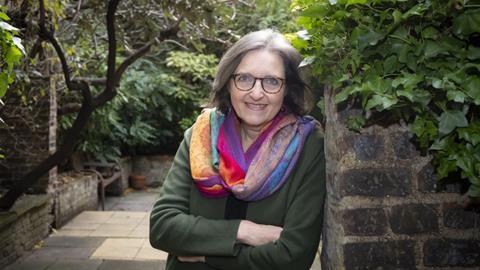Rowan Bray, MD, Clear Cut Group explains how the post-production sector is working hard to establish a more diverse workforce

When I started working in post-production (several decades ago) there were plenty of ‘characters’, probably more than now, but there were no women MDs or creatives.
There were already women working in client-facing roles like sales and bookings, alongside some technical operators, but that was about it.
There was not really an expectation to have a life outside work – we all committed to our careers 24/7 and it was full on.
We have come a long way – with women heading up a significant number of the Post and VFX companies, they are also represented across technical and management roles at all levels, with plenty of talented and successful engineers, operators, editors, colourists and mixers BUT we have not achieved gender parity across our businesses …yet.
I don’t believe you should ever recruit or promote a colleague based on anything other than their skills and abilities.
As it happens we have more women than men on our management team delivering a diverse range of views and experience as we all bring something different to the table.
However, more disappointing is that we do not reflect the characteristics of our local, very diverse, population. For that to happen we need to find a wider range of candidates to build a more equal cohort in terms of numbers – be they women, ethnicity, those with seen and unseen disabilities or those from less advantaged backgrounds.
The challenge is the same – increase the diversity of applicants, while removing the obstacles to career progression, so that the opportunity to pursue an interesting and rewarding career path is more visible.
It disappoints me that, for such a huge sector, roles in the creative industries are invisible to the careers advisors and parents of the school kids who will form our next cohort of employees.
In post-production, we provide long-term permanent roles, not the freelance careers that can seem so unstable to applicants, and we provide complex, rigorous technical training – enabling career progression and meaningful salaries and opportunities.
However, the hours can be long, the schedules unpredictable and sometimes compromises have to be made – I know my daughters did not see as much of me as I would have liked when they were growing up but now they are career women in their own right.
I was lucky, my partner and parents were able to help and we shared the load, so I got to pursue a career I loved and was rewarded by – that’s not the same for everyone.
We can’t expect our new entrants (whatever their age or previous experience) to have any relevant skills or knowledge in post-production, just energy and life skills that can be channelled into a range of roles in the business.
They don’t need a degree, in fact I chaired the Trailblazer group that championed technical apprenticeships in post to provide alternative opportunities for formal qualifications.
As a business, if we see potential that needs nurturing we provide the training, mentorship and opportunities to let everyone thrive.
We are also fully adaptable in how we approach flexible working. We try and remove practical obstacles to get the best people – why wouldn’t we? Delivering a work-life balance that works for each colleague is key for all our staff, our clients expect us to be the best we can be – allowing the best people to thrive in every role makes commercial sense and its more fun in the office too.
Rowan Bray is managing director of the Clear Cut Group








No comments yet